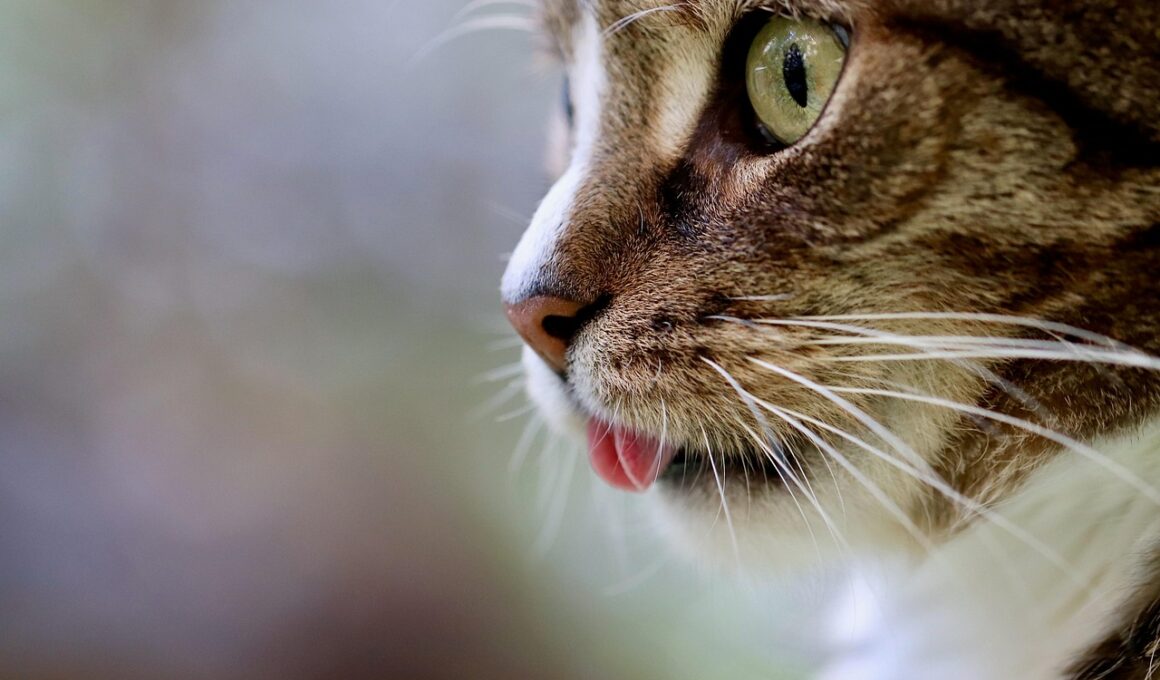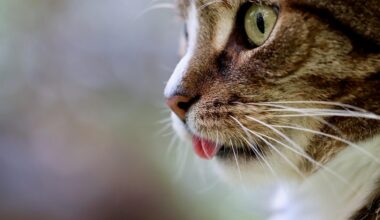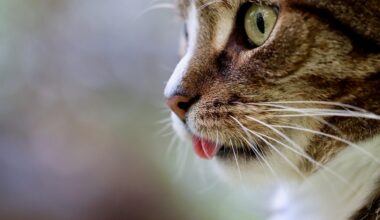Separating Myth from Science: Do Cats Recognize Their Owners?
Understanding whether cats recognize their owners involves examining various behaviors that indicate attachment and recognition. Many people mistakenly believe that cats are aloof and indifferent to their owners. However, studies suggest that cats can indeed recognize their owners, both through voice and scent. When their owners call them or enter a room, a cat may show recognition by responding or approaching. Some cats display affection by rubbing against their owners or following them, which are common signs of bonding. Another important aspect is the communication cats use with their owners, which differs from their interactions with strangers. They may engage in unique vocalizations that are tailored to their human companions. While their behavior can sometimes seem inscrutable, these actions often reveal deeper emotional connections. Instead of viewing cats as solitary creatures, it’s essential to appreciate their capacity for companionship. The relationship built with their owners significantly influences their mental health. A stable environment provided by a loving owner helps reduce stress and anxiety levels in cats. This connection fosters a healthier and more balanced mental state for our feline friends.
Another common myth about cats is that they do not form emotional attachments. Yet, numerous observations highlight that cats can experience profound connections with humans. These attachments can be particularly understood when observing a cat’s behavior in the absence of their owner. Cats often exhibit signs of distress or anxiety when left alone for extended periods, showing that they indeed miss their human companions. They might vocalize more, engage in destructive behavior, or even refuse to eat. This emotional turmoil indicates that cats value the presence of their owners greatly. Moreover, studies have confirmed that cats can respond to their owner’s emotions and moods. They may approach their owners during times of need for comfort. Emotional intelligence in cats is a crucial part of understanding how they interact with their owners. Many owners recount how a beloved cat would sit near them during tough times, offering silent support and love. This empathetic behavior reinforces the idea that cats are capable of recognizing and responding to their owners’ emotional states. Such dynamics underline the importance of nurturing a healthy bond between cats and their owners.
Behavioral Indicators of Recognition
Observing your cat’s behavioral responses can be enlightening when determining if they recognize you. Cats often communicate through body language, which includes posture, tail position, and facial expressions. When greeting their owners, a cat may show characteristics like purring, slow blinking, or playfulness, suggesting familiarity and affection. In contrast, a cat may display defensive or hesitant behavior towards strangers, indicating a clear distinction in social recognition. Additionally, some cats might bring toys or gifts to their owners, a behavior stemming from instinctual hunting that underscores their desire to bond. The context of play is crucial in cat-owner interactions; interactive play is a significant bonding experience that reinforces recognition. Cats also have exceptional memories and can recall past interactions, even with people who do not visit regularly. This cognitive ability helps them recognize owners even after extended periods of separation. Being aware of these subtleties can enrich the relationship you have with your cat and promote better understanding of their needs and emotions.
It’s vital to understand that each cat is unique, with differing personalities. Some may have stronger attachment styles reminiscent of dog-like behavior, while others might be more independent. The idea that all cats possess the same temperament is misleading. Environmental factors significantly influence a cat’s recognition capabilities. For instance, early socialization and regular interaction with their owner positively impact a cat’s ability to recognize and bond with them. Kittens exposed to a variety of stimuli tend to develop healthier social behaviors in adulthood. On the contrary, feral or poorly socialized cats may struggle to form these connections properly. Engaging with your cat regularly helps strengthen the bond, ultimately aiding in their overall emotional resilience. Furthermore, establishing routines contributes positively as cats thrive on predictability. Feeding, playing, and affectionate behaviors at set times create a secure environment. All of these factors combined help in promoting recognition by your cat, therefore improving their mental health and fostering a loving relationship between owner and pet.
The Science Behind Cat Recognition
Scientific studies have been conducted to delve deeper into how cats recognize their owners. Researchers conducted experiments observing visual and auditory cues, shedding light on feline cognition. In various studies, cats displayed the ability to learn and recall their owner’s voice. This reinforces the notion that cats actively listen and respond, indicators of recognition. They were observed to follow the sound of their owner’s voice rather than responding to random noises. Moreover, scent plays a crucial role, as cats have an acute sense of smell, allowing them to recognize their owner’s unique scent. This powerful olfactory perception is often overlooked. When a cat sniffs their owner, they engage in a process that involves both recognition and comfort. Additionally, the studies underline that cats are more likely to respond positively to their owners than to unknown individuals. Strengthening this bond through regular interaction positively contributes to their mental health, suggesting that cats value their social connections, much more than previously assumed.
Furthermore, emotional support plays a significant role in cat behavior. Cats that have a secure attachment to their owners demonstrate traits akin to dogs, including loyalty and affection. Conversely, cats without this relationship may exhibit anxiety and stress-related behaviors. An owner’s absence can lead to feelings of insecurity, often resulting in changes that become evident in behavior. These changes can reflect in their overall health, potentially leading to depression or stress. Providing your cat with a stable, loving environment fosters these connections. Activities like grooming, interactive playtime, and maintaining a consistent routine help in building trust. In essence, their recognition of owners is part of their evolutionary behavior as social animals. Understanding that these emotional connections are vital can enhance the owner-cat relationship. It’s not only beneficial for the cat’s mental health but also enriches the lives of the owners, creating a more fulfilling bond. Recognizing the nuances of these relationships promotes better care and well-being for our feline companions.
Conclusion
In conclusion, separating myths from reality regarding cats and owner recognition reveals a complex emotional landscape. Cats are not merely solitary creatures; they are capable of deep affection and attachment. Debunking myths surrounding feline behavior fosters better understanding and encourages more responsible ownership. Recognizing your cat’s behavior and emotions contributes significantly to their mental health. As owners, understanding the importance of establishing a reliable bond builds a foundation for a better life for your pet. Mental well-being in cats should be prioritized, as they are affected immensely by their environment, including their human interactions. By nurturing this recognition and connection, you not only enhance their emotional health but also find joy in the companionship of a beloved pet. As we continue to learn more about feline cognition and emotional depth, the relationship between cats and their owners will grow stronger. In the end, promoting healthy interactions and providing love provides a more profound purpose that enriches both your life and that of your cat. Your commitment to understanding and care will lead to a happier, healthier cat.
As we embark on this journey into cat mental health, it’s essential to consider how our feline companions perceive their world. The debunked myths surrounding their capacity for recognition should guide us in forming better communication and bonds with them. Greater awareness of cat behaviors will lead to fulfilling relationships built on mutual understanding and trust. This foundation significantly enhances not only their quality of life but also creates incredible companionship for our journey together.


